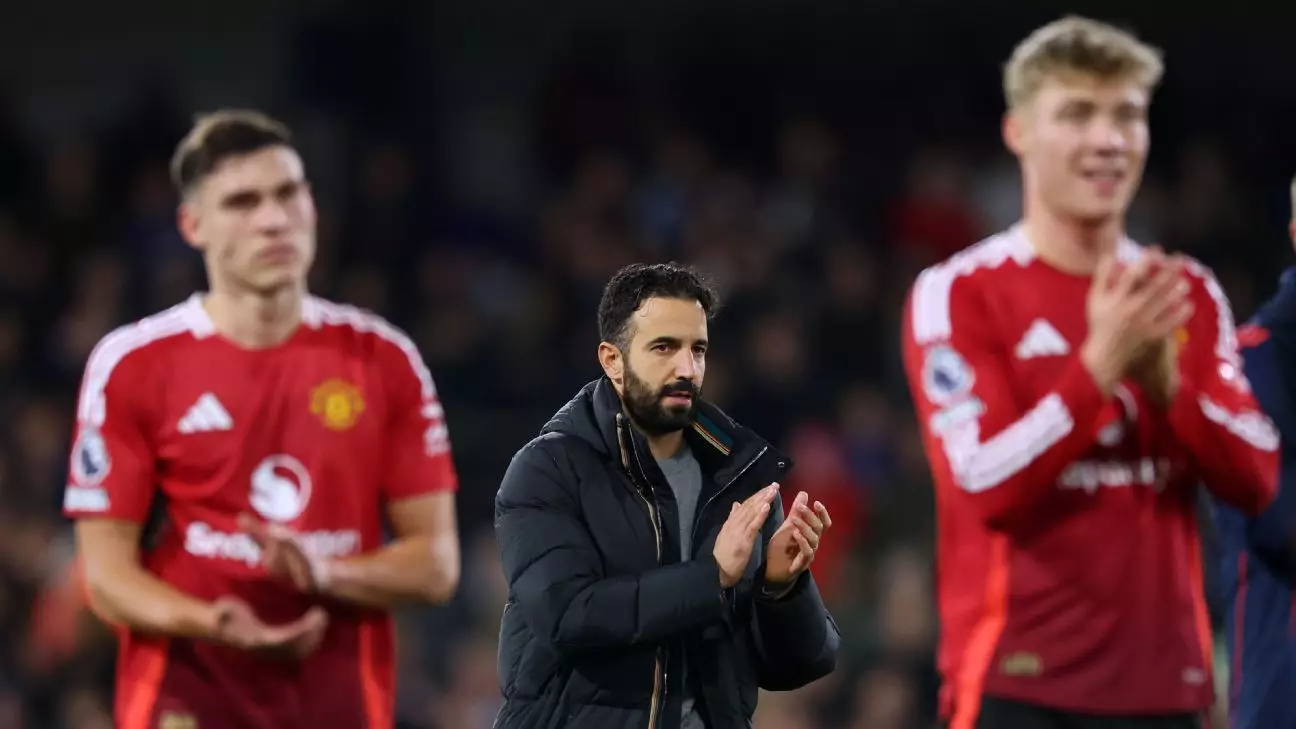In recent weeks, Ruben Amorim, the newly appointed head coach of Manchester United, has expressed his discomfort with the enthusiastic chants from fans that highlight his name. This peculiar situation has arisen as supporters have adopted the catchy tune of “Give It Up” by KC and the Sunshine Band, substituting the lyrics with Amorim’s name. While the recognition reflects a promising rapport between the fans and their new manager, Amorim believes that the focus should shift squarely onto the players who are playing on the pitch. He articulated a clear sentiment: “I don’t like my chant.” His perspective is rooted in humility, demonstrating a deep respect for the athletes who are tasked with the endeavor of winning matches.
Amorim’s apprehensions reveal an inherent understanding of the football culture where the admiration should preferentially be directed toward the performers on the field. It is not uncommon for coaches to bask in the affectionate chorus of fans, yet Amorim stands out in insisting that such expressions should be a testament to the players’ efforts and talents rather than his own. His words convey a sense of duty to uplift his team, highlighting the collective nature of success in football rather than individual accolades. “They have to chant for the players and for the club,” he stated, illustrating the importance he places on the team dynamic over individual recognition.
Despite his unyielding stance on the matter, Amorim is genuinely touched by the reception he has received during his brief tenure. His acknowledgment of the connection with supporters demonstrates his awareness of the powerful role fans play in the ecosystem of a football club. This connection is crucial, not just for the morale of the team but also for cultivating a winning culture. Amorim recognizes that embracing this connection can yield positive results; however, he emphasizes that success is necessary to maintain this bond.
He appears to appreciate the passion of Manchester United fans and understands that such enthusiasm can be pivotal in creating an intimidating atmosphere for opposing teams. However, it is evident that he intends to illuminate the spotlight on those players executing on the field. Amorim’s vision embraces a shared responsibility between him and the squad. He is focused not only on his ambitions as a coach but also on nurturing a spirit within the locker room that translates into positive outcomes in matches.
As he prepares to lead his side against fierce rivals Arsenal, the pressure on Amorim mounts. The anticipation builds, especially with star midfielder Bruno Fernandes declaring himself fit to play after battling an ankle injury. This comeback is timely, as his creativity is vital for the team’s performance against challenging opponents. Additionally, the potential debut of Leny Yoro, a promising French defender who has recently recovered from a significant foot injury, adds another layer of excitement. The young talent embodies the modern style of play Amorim is keen to implement, indicated by comments about his speed and ability to fit into a high-press system.
Amorim’s excitement about integrating new talents into the squad is palpable. He exhibits his strategic foresight in acknowledging the importance of gradual integration into the team environment, especially given that their training sessions have been limited as a result of Yoro’s recovery. His comments reveal an understanding that nurturing player development can be as crucial as immediate victories, as he aims to establish a foundation for sustained success.
Overall, Ruben Amorim’s candidness and humility shape a refreshing narrative within the high-pressure world of football management. His focus on team spirit over personal recognition, coupled with a clear strategy for navigating challenges ahead, highlights a thoughtful approach to leadership. As every match unfolds, one can see that Amorim’s commitment to the players and the club remains steadfast, echoing a sentiment that true sportsmanship transcends individual accolades and resonates in the unity of collective endeavor.

